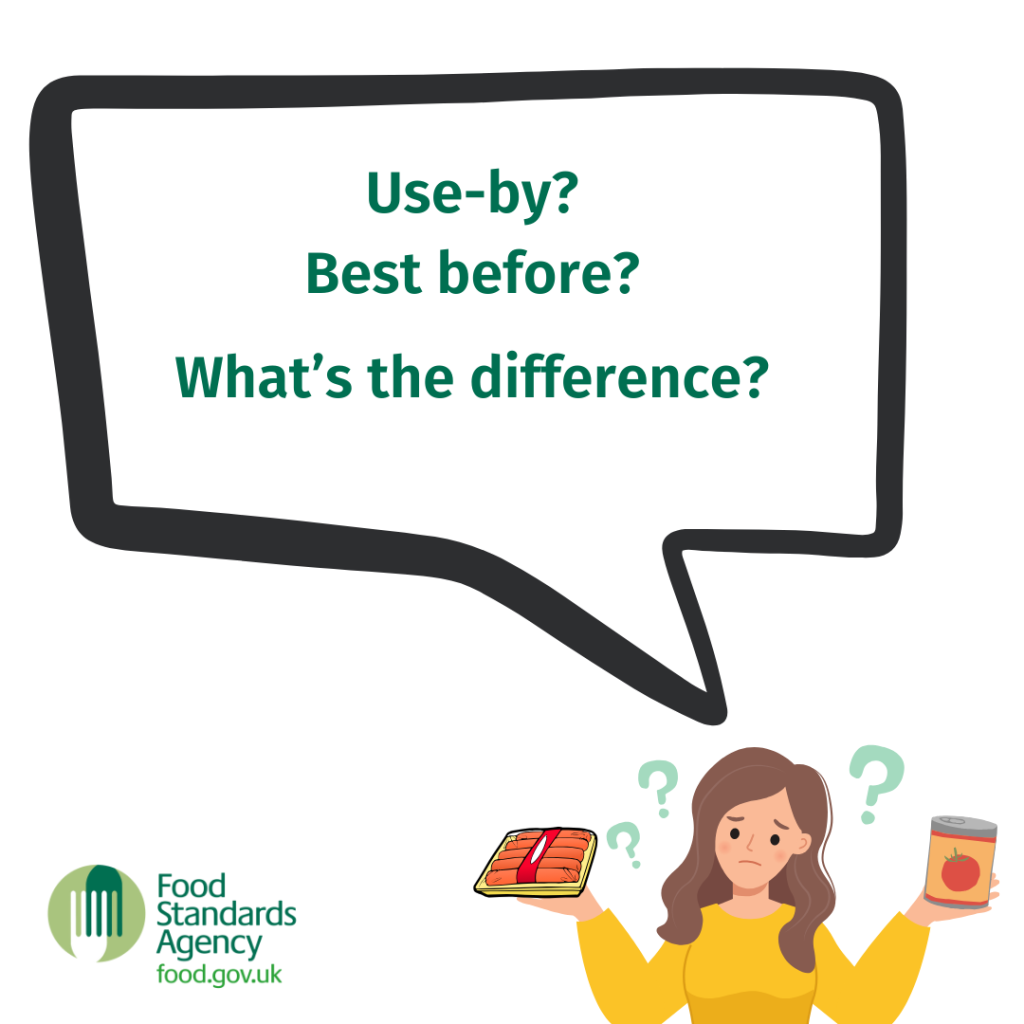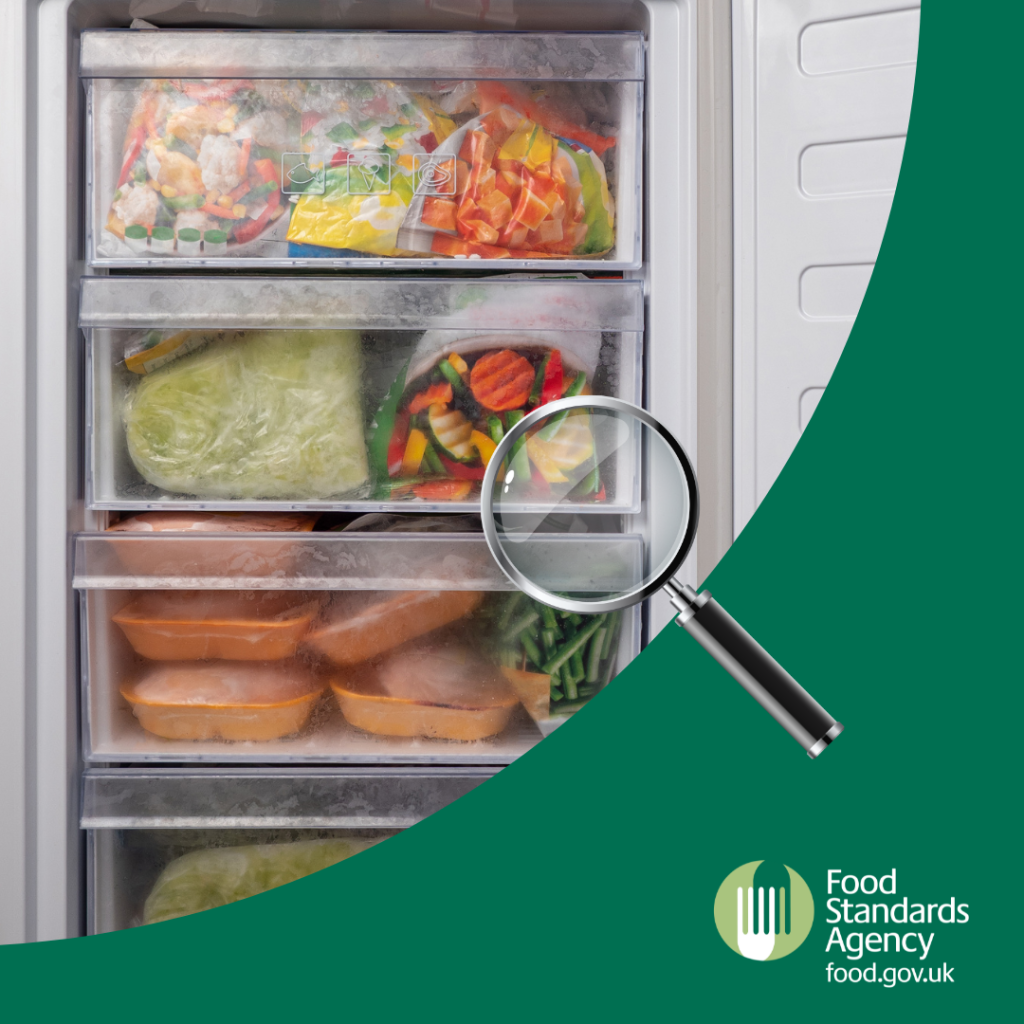This campaign is being launched to provide general advice on food safety and hygiene in the home and act as reminder to regularly clean out cupboards or fridges and check use-by and best before dates on items.

It’s time to spring clean those kitchen cupboards and find out what jars and tins have been pushed to the back!
When de-cluttering, make sure you check the best before dates on food products! Remember a use-by date is different. It’s not safe to eat food past its use-by date as it could make you ill.
More information on best before and use-by dates
Let’s settle this debate… Should eggs be stored in the cupboard or in the fridge?
Eggs should be stored in a cool, dry place. Ideally, eggs should be stored in the fridge which will keep them at a constant temperature and keep them fresh for longer. The FSA recommend that you follow the manufacturer’s advice and avoid storing eggs where they would be exposed to temperature changes. Temperature changes can lead to condensation on the surface, which causes increased penetration of Salmonella from the outside of the shell into the egg.
Did you know that you can also freeze eggs? To find out more, visit The Home Food Fact Checker
Tea towels, dish cloths, aprons, oven gloves… in an ideal world, they’d all clean themselves!
The reality is all of these things need to be washed or changed regularly to reduce the spread of bacteria and viruses and prevent cross-contamination. Bacteria spreads more easily on dirty and damp fabrics, so wash your cloths and tea towels regularly and make sure you leave items to dry before using them again.
For more information, visit Why is cleaning important | Food Standards Agency
When it comes to meal prep or keeping food fresh, freezers are king!
Think of your freezer as a pause button – frozen food won’t deteriorate and bacteria can’t grow in it. The FSA top tips for safe freezing…
- Freeze leftovers and homemade food as soon as possible, and label items stating what they are and the date they were frozen.
- Freeze pre-packaged food before midnight on the ‘use-by’ date.
- Cool warm dishes before putting them in your freezer.
- Place food in an airtight container, freezer bags or freezer wrap to avoid it drying out.
For more information, visit How to chill, freeze and defrost food safely | Food Standards Agency
Best before, use-by… what’s the difference?
A ‘best before date’ means exactly that: the food is at its best up until that date. It’s still safe to eat it after that, but the taste and quality might not be as good as before.
A ‘use-by’ date is a measure of safety. Never eat food after the use-by date even if it looks and smells ok – you can’t see, smell or taste the bacteria that cause food poisoning. You can eat food until midnight on the use-by date shown on a product, but not after, unless the food has been cooked or frozen.

To find out more about the campaign, food allergens, labelling, consumer guidance, business advice and all other matters relating to food standards, please visit Homepage | Food Standards Agency
The WI Learning Hub acknowledges and thanks the FSA (Food Standards Agency) for sharing this information with the WI.



